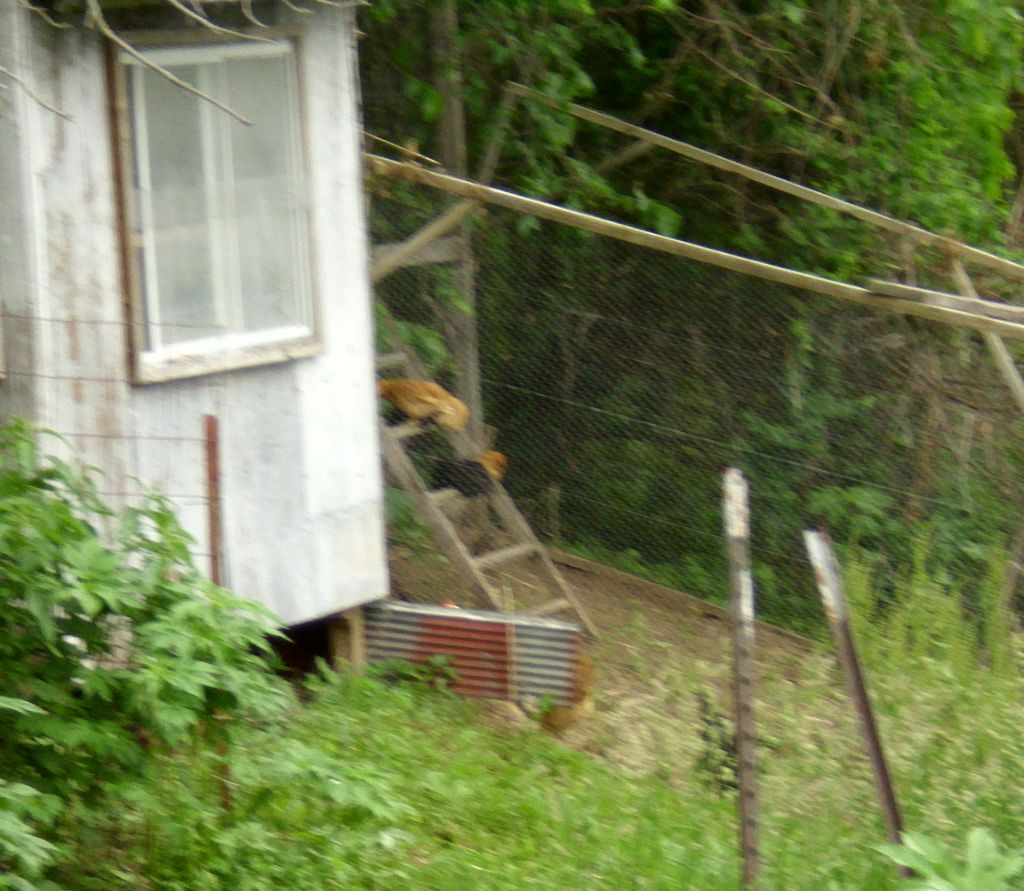The chicks are continuing to grow. They’re definitely working their way into coop life. Of course, the hens will continue to intimidate them until they’re full sized, but it all comes down to keeping the pecking order straight. As the new chicks become larger and more capable, some of them will work their way up the social ladder and eventually become leaders in the coop. It’s fascinating to watch them grow and change. They still peep like young chicks, which is one of the reasons I think the hens don’t actually spend a lot of time harassing them. Nature provides cues that younger animals need special care. It’s most definitely that way with hens. I imagine there will be some additional confrontation in the coop when the chicks become full-fledged pullets. In the meantime, the hens do continue to teach their charges the appropriate behavior of chickens.
At a certain point in their development, chicks will start to manifest more hen-like behaviors. This week I noticed that the chicks are now starting to hang out with each other outside. They’ll simply roost together during the daylight hours and watch that silly man working in the heat of the day in the garden. I actually do find them staring at me. I tried to get a good picture of the roosting behavior, but every time I started getting close enough, they’d jump down because they just knew I was going to feed them.

Sometimes the chicks will sit out there for hours just watching the world pass by. They murmur at each other and I often wonder what they’re saying. If you listen long enough, you do find that chickens most definitely have a vocabulary.
There was a change in the chick lineup this week and it probably happens in most coops at some point. One of the Barred Plymouth Rock chicks never really got along with the others. It would try to attack the older hens and it didn’t pal around with the other chicks. I could never get it to sit in my hand. Let’s just say that it wasn’t very social. I had planned on spending time with it improving its social skills. Unfortunately, the chick had other ideas. It ran between my legs to get out of the coop this week. Nothing would convince it to come back inside and every attempt to catch it was unsuccessful. This meant that the chick would spend the night outdoors. Someone had a chicken dinner that night—I never saw the chick again. Interestingly enough, I didn’t get any eggs the next day. The chickens seemed to realize that someone was missing.
People fail to understand that chickens, like every other animal, have personalities. Those traits define how the chicken acts within the flock. For example, I’ve had to get rid of some chickens in the past because they started eating eggs (see Feeding for Healthy Chickens for details). You can modify some behaviors, but not others. An antisocial hen will cause constant problems in the flock and that’s what was happening with this Barred Rock. After she left, the coop suddenly quieted down. Because of their personality traits, you need to treat the chickens in the flock differently. Some chickens really do want to be held, others petted, others talked to, and some just want to be left alone. Knowing your hens makes a huge difference in providing appropriate care.
The chicks are also making progress in their management training. At the end of the day I can now put their final bit of food in the coop. Going into the run, I can clap my hands and they run inside to enjoy their meal—at which point, I close the run door. Eventually, they’ll start to come when I cluck at them. It takes time to train the hens, but the older hens do come when I call them. Let me know your thoughts about all things chicken at [email protected].
